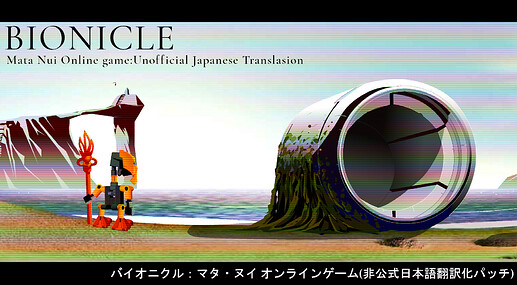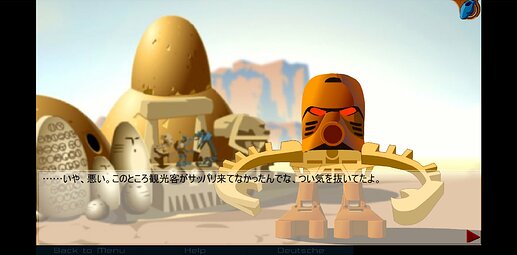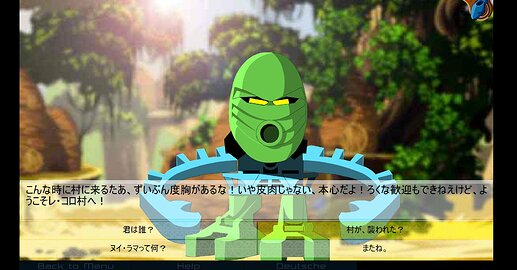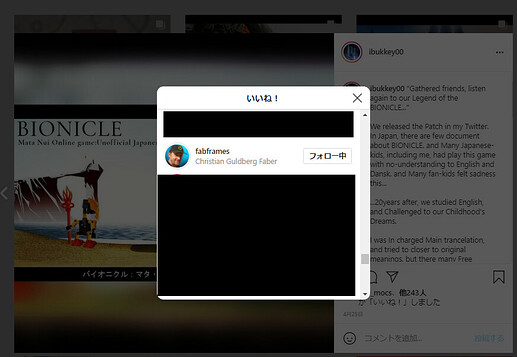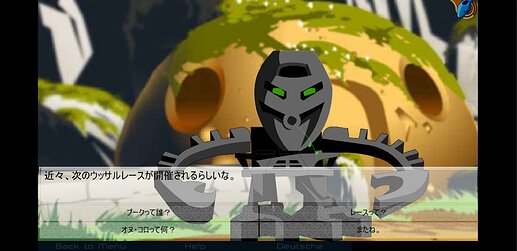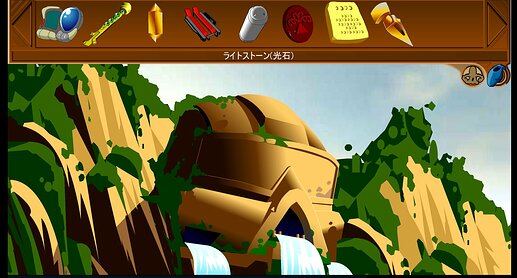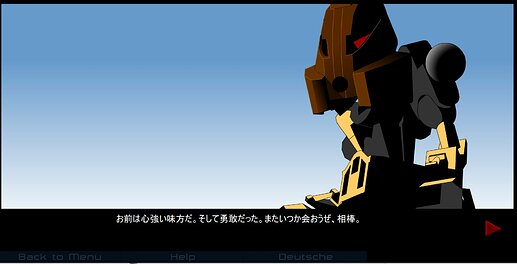I’ve announced on my Twitter account a while ago, we team of Japanese BIO-Fans have completed an unofficial Japanese translation of MNOG.
(I was the organizer of the project, and in charged of the translation to Japanese)
20years ago, In Japan, we Fans felt big sad to MNOG has only English or Dansk.
Many child tried play it, but couldn’t understand Matoran’s language, and gave up its full clear.
But NOW, We’ve get to understand English, and finished it.
People who still fans of Bionicle, or who quit because they couldn’t follow the world view when they were children, and who met BIONICLE for the first time.
Many people are playing MNOG unofficial Japanese translations.
In this country, Japan, the Legend still continue, and just began.
Now I must say this word:
“Gathered Friends…”
.
.
.
※This Janapsese-translation-patch is just a fan-creation, and it doesn’t have any relationship woth LEGO and its aliances.
We don’t have any will to attack or causing damage to LEGO and its aliances.
and If we recieved any warnings by LEGO and its aliances, we will stop releasing this with no notice.
And in this patch, there are many Free translations.
we made an effort to closer to original meanings, but if you dislike them, please forgive us!
※This program had created to works well with Computers that made in Japanese. If YOU or YOUR Computer are not Japanese, it may not works or Break yours. BE CAREFUL!!
※AND If this program gave any damage to you, we can’t can’t claim responsibility. Please UNDERSTAND!!
Add: Mr. Faber liked this project in my Insta! Thank you!
